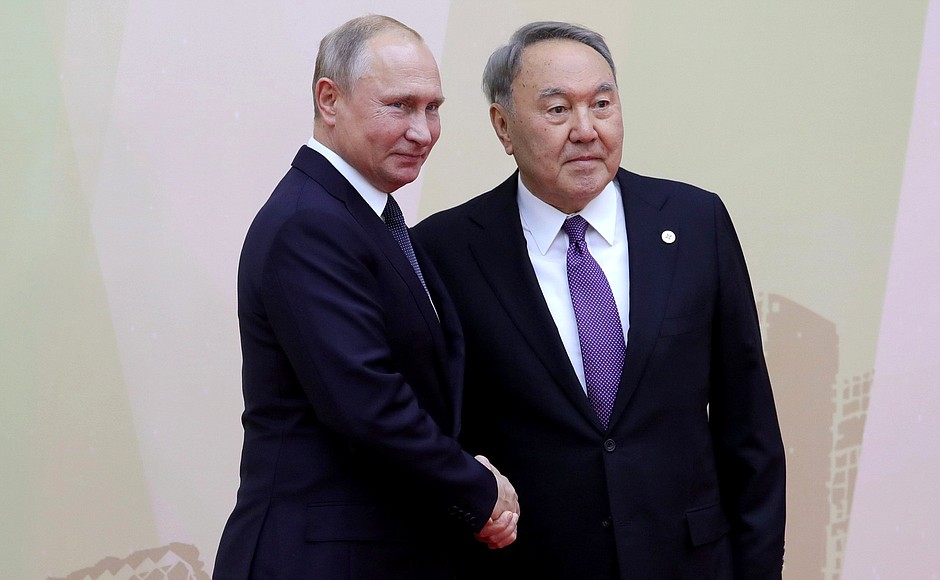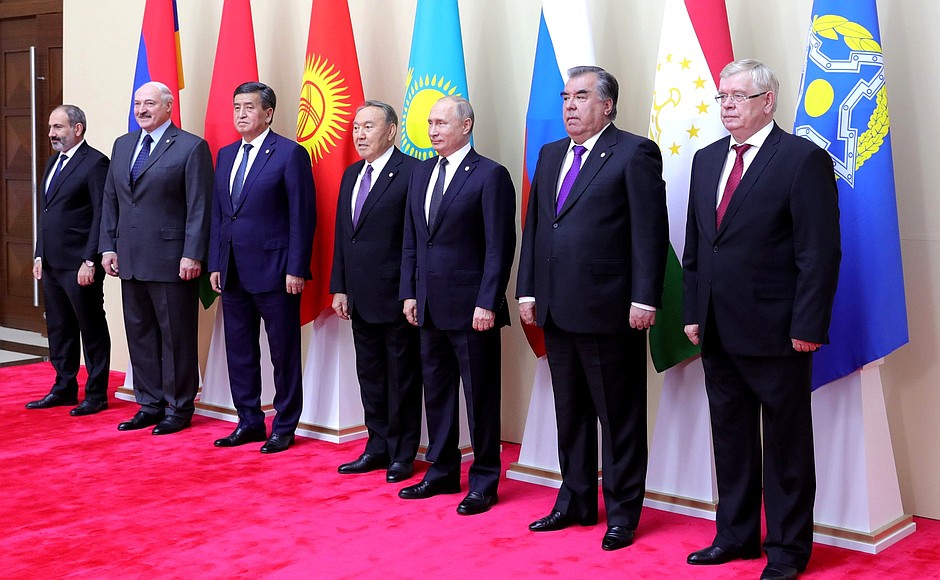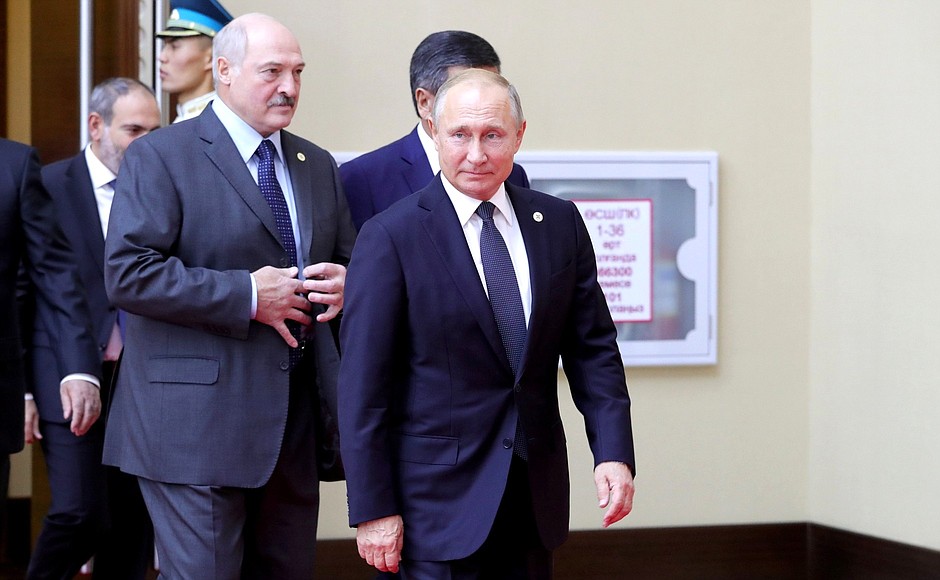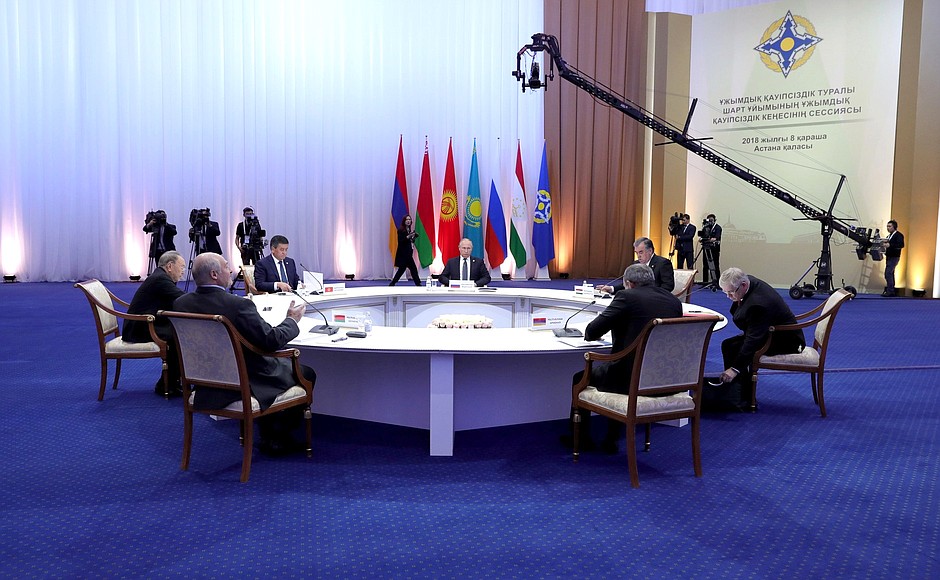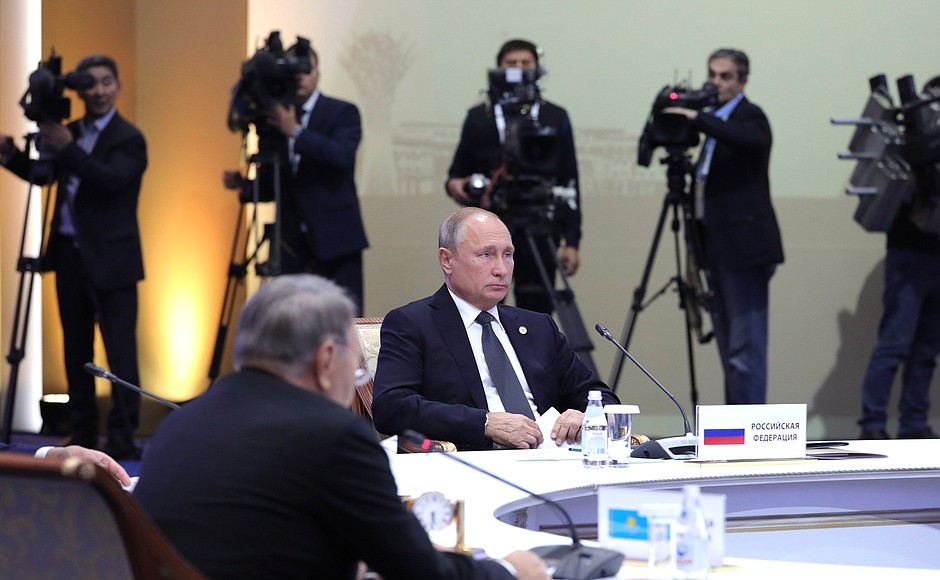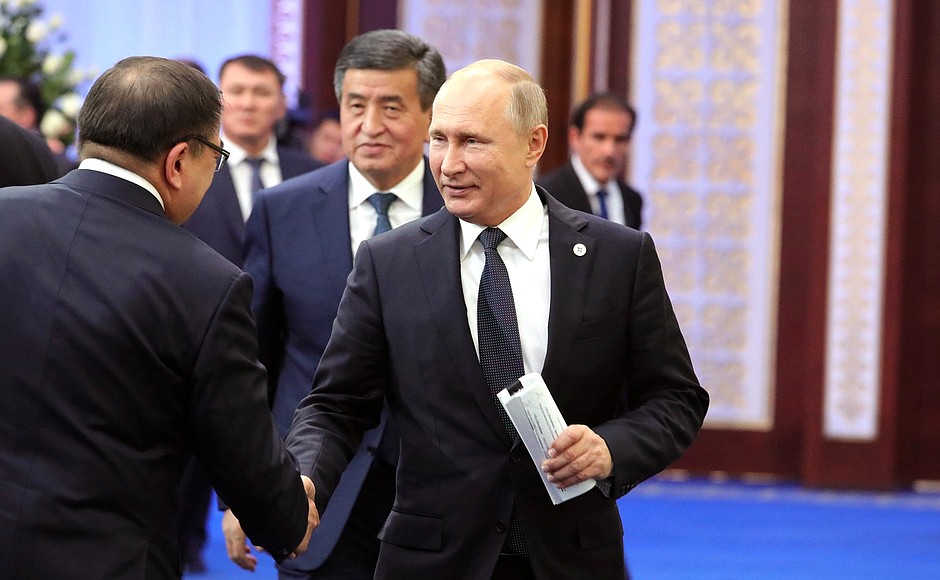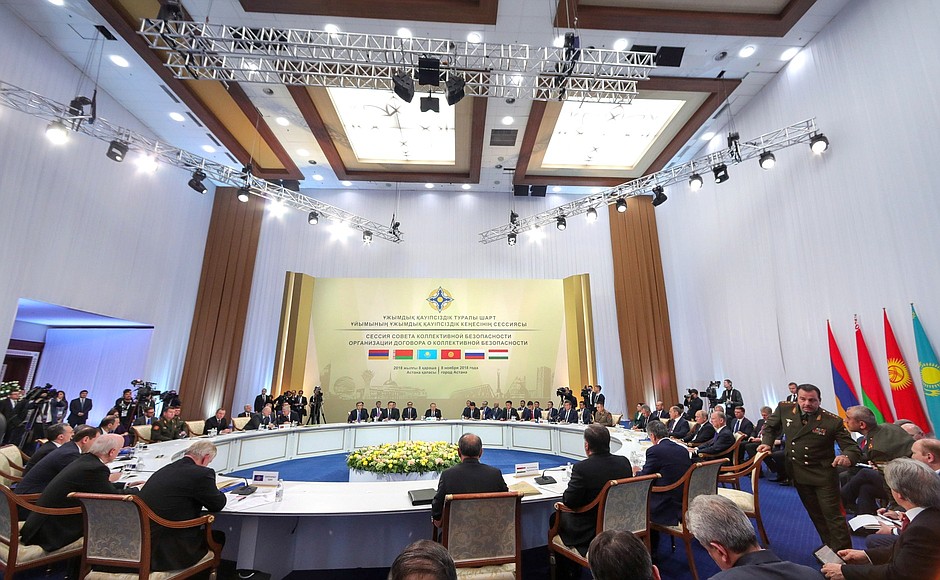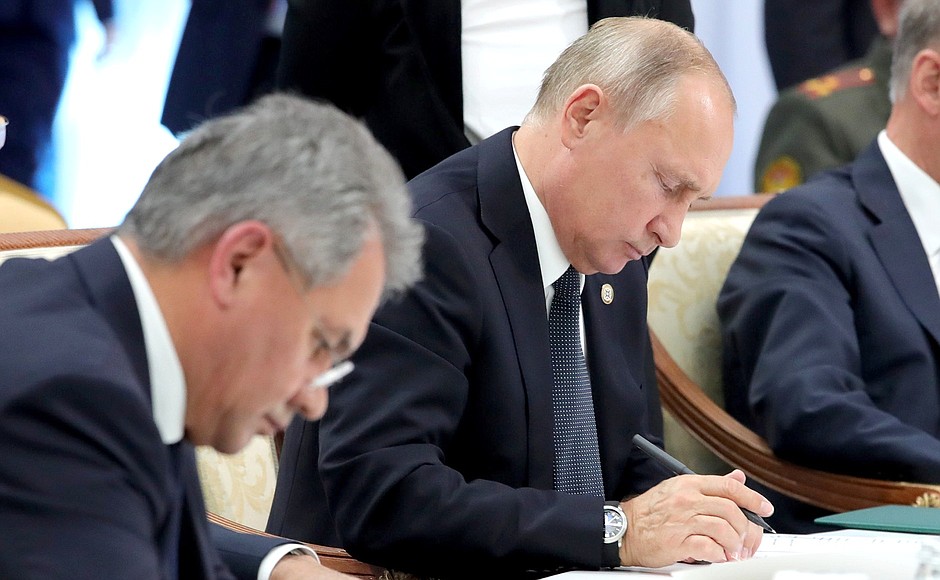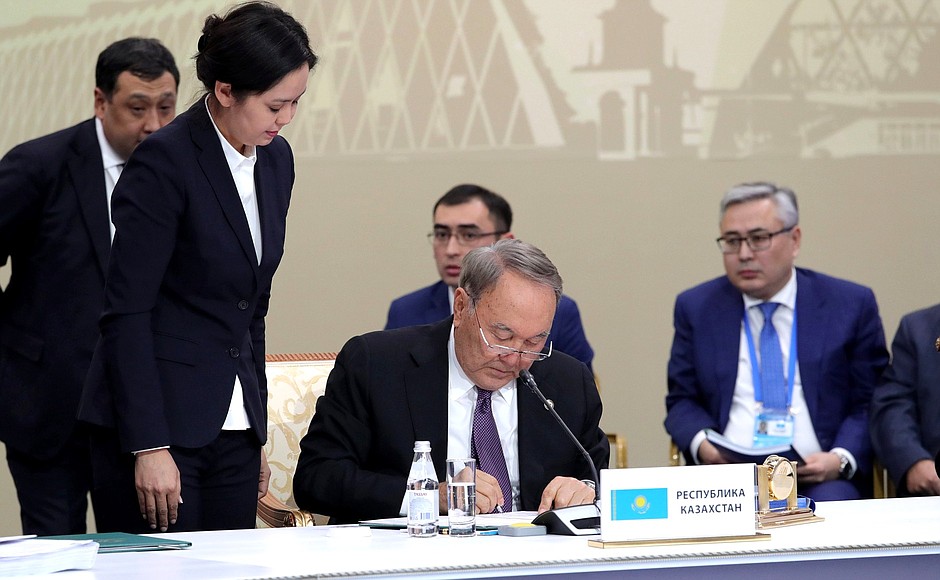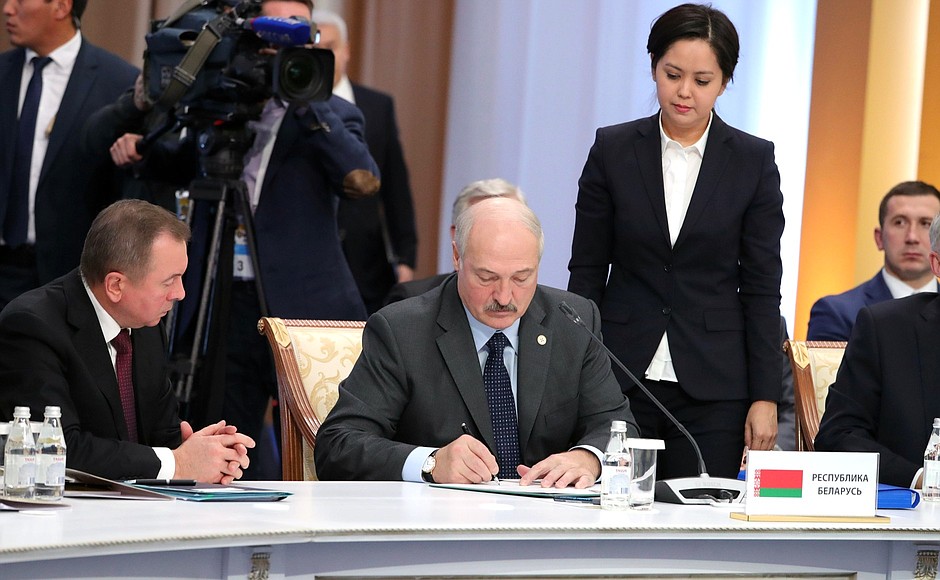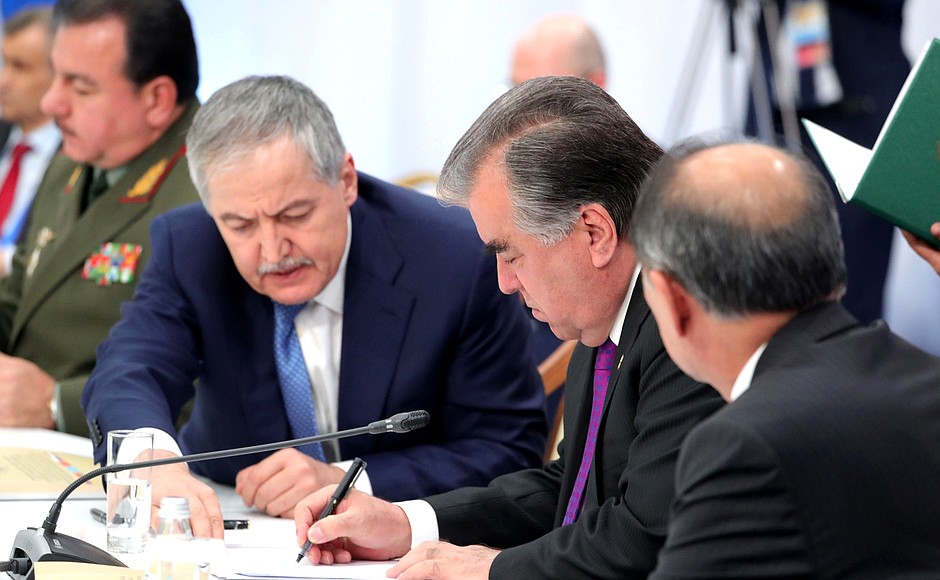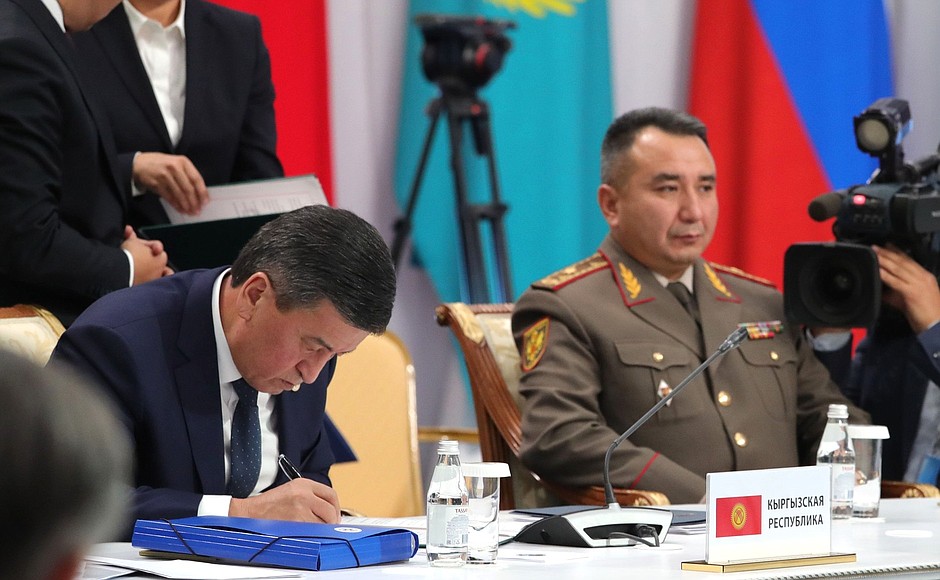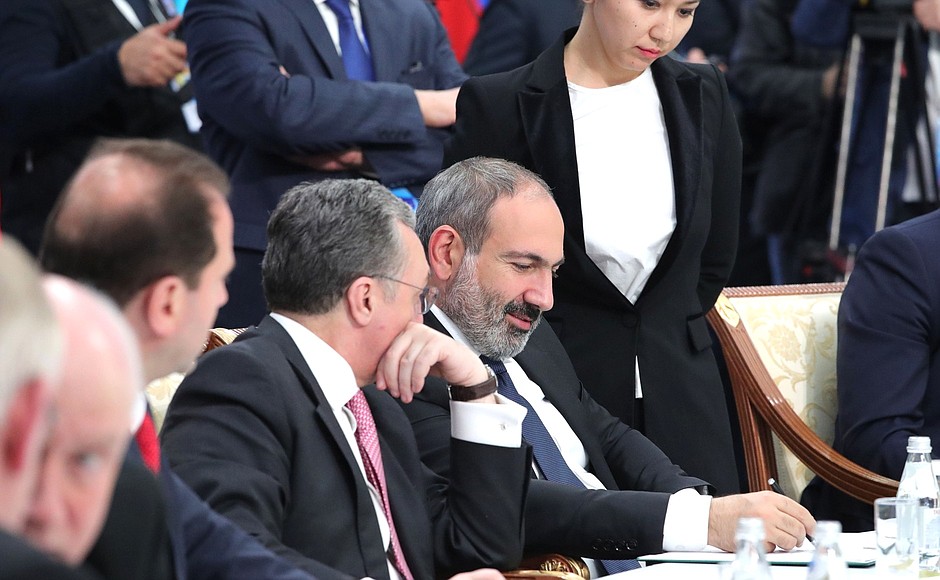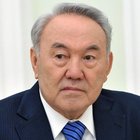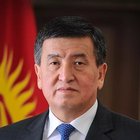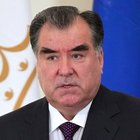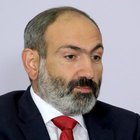Vladimir Putin, President of Belarus Alexander Lukashenko, President of Kazakhstan Nursultan Nazarbayev, President of Kyrgyzstan Sooronbay Jeenbekov, President of Tajikistan Emomali Rahmon, Acting Prime Minister of Armenia Nikol Pashinyan and Acting Secretary General of the CSTO Valery Semerikov met in restricted format, followed by expanded talks attended by members of the delegations.
During the meeting, the participants exchanged views on the CSTO’s work in the context of ensuring international and regional security. They adopted a series of decisions, including a regulation codifying partner and observer status in the Collective Security Treaty Organisation.
The President of Russia updated the audience on the strategic stability and arms control situation in the context of the unilateral decision of the United States to withdraw from the Treaty on the Elimination of Intermediate-Range and Shorter-Range Missiles; the prospects for possible negotiations with the US side on the INF Treaty; the dialogue of participants of the Astana process and the so-called Small Group on Syria that began in Istanbul.
The summit participants devoted considerable time to selecting a candidate for the next Secretary General of the CSTO and agreed to make a final decision on December 6 in St Petersburg.
A range of documents were adopted following the meeting. The heads of delegations of the CSTO member states signed the CSTO Collective Security Council Declaration.
They also signed the Statement of the Heads of CSTO Member States on coordinated measures against parties to armed conflicts on the side of international terrorist groups.
In particular, the documents signed amend the Collective Security Treaty of May 15, 1992, and the Charter of the Collective Security Treaty Organisation of October 7, 2002; make personnel changes to the military contingents and special task units of the CSTO Collective Rapid Reaction Forces; regulate the development of the collective system for controlling illegal migration until 2025; and promote a coordinated information policy in the interests of the CSTO member states.
